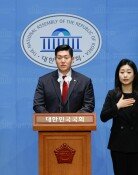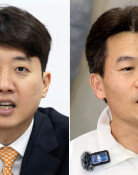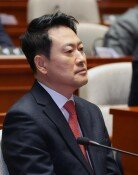[Opinion] Historical Drama `Age of Prosperity`
[Opinion] Historical Drama `Age of Prosperity`
Posted January. 05, 2002 13:40,
Last summer, I wrote a piece for the book column about `Jing Bi Rok` by Yu Sung-Ryong of Choson Dynasty. Using the lack of public order and responsible government officials as the basis for the plot, the book narrated an episode where Korean soldiers engaged in fratricide. Woo Bok-Ryong, chief official of Yong Koong, was making his meal by the roadside on the way to Kyongsangdo Yoeng Chun when hundreds of soldiers from Hayang sped by on their horses without stopping since they were dispatched to defend the northern territory. Woo Bok-Ryong ordered his subordinates to surround them, accused them of mutiny, and massacred them. That bloody episode where dead bodies covered the ground was the general story of the book.
Shortly after, I received a protest letter from an individual who is supposedly a descendent of Woo Bok-Ryong. He said that the article distorted the facts and listed Woo`s public merits. In the time of Kojong`s rule, the poet Oh Chang-Hwan who was the second son of Seung-Ji sang, `We cannot know whether our grandfather was truly from the Oh family or whether he was from the lower classes` but worship of ancestors and veneration of family lineage is still strong. Even in today`s global age, the ashes of old aristocratic society remains.
To cut to the chase, I and my ancestors have no business with each other. Even if we were to talk about the ancestors of recent generations, I cannot claim their merits for myself, nor can the blame for their mistakes fall on me. Without internalizing this kind of outlook, the modern individual cannot emerge. If regionalists are `advocates of horizontal aristocratic lineage`, aristocratic lineage advocates are `vertical regionalists`. Both are relics of the past that must be disposed.
Having entered the 21st century, our society and history must move forward without relying on past models. As an example, during the 1960s when economic growth was the top priority, we still had the model of Western industrial societies. We could move forward as we consulted their successes, mistakes, and lost opportunities.
Revolutionary thinkers took socialism as a model standard. In today`s global era where older models have fallen away and information industries have become universal, reliance on precedents and past models has disappeared. The only way left to us is to find our own path by carefully examining our current situation.
The thing that immediately presses upon us and looms large in our minds at this point is our history. We have to learn the lessons from the past and glean its wisdom. `History is like a deaf man who gives answers to questions no one asks` said Tolstoy and asserted that it was pointless to seek lessons from history. Is that really true?
There are many fans of historical dramas today in our society. These dramas specially target audiences in their middle age and one frequently hears discussions where these dramas are the topic of conversation. Usually, these conversations try to predict what plot is in the works and what will happen next.
Yet, the dramas also offer us the opportunity to shine the light on our past history and examine them anew. The Koryo Kingdom and the Hanmal Era are both important times for us to remember and examine. An objective assessment of oneself is always difficult regardless of time. Without it, however, a wise and appropriate decision or action cannot come about.
Along these lines, Kim Hoon`s novel `The Song of the Sword`, which currently has a wide readership, is a big help in our reflection on our history. This historical novel which looks at the warrior Yi Sun-shin`s existential struggles tells a story that breaks through the conventional framework of historical novels and casts the past in new colors. The emperor who keeps the machinations of power running by an endless trail of blood, the refugee who must die simply because of their facial features, these things come alive again through the novels compact writing style.
We can deepen our understanding of the Japanese Invasion by reading this novel along with Choong Mu-Gong`s `War Diaries`. The fruit of our labor will be all the greater if we were to read `Jing Bi-Rok` as well. Yi Sun-shin, who gained the admiration of even the Japanese navy, spent the days of ancestral commemoration on the seas, later suffered imprisonment, and went into battle without having his rank restored. This is the unexaggerated image of our past. How different we have become today.
The path from the Japanese Invasion to the Manchu Invasion to the nation`s ruin forcefully refute the claim that history is like `a deaf-man who gives answers to questions no one asks`.
We should not vacillate between joy or sorrow over our ancestors` merits or failures. Instead, we should look with greater critical severity when it comes to our ancestors and face the present. We need the wisdom to see clearly our ancestors who needlessly suffered two Japanese invasions and two Manchu invasions.
Yoo Jong-Ho (Yonsei University, Endowed Chair Professor, Literary Critic)







